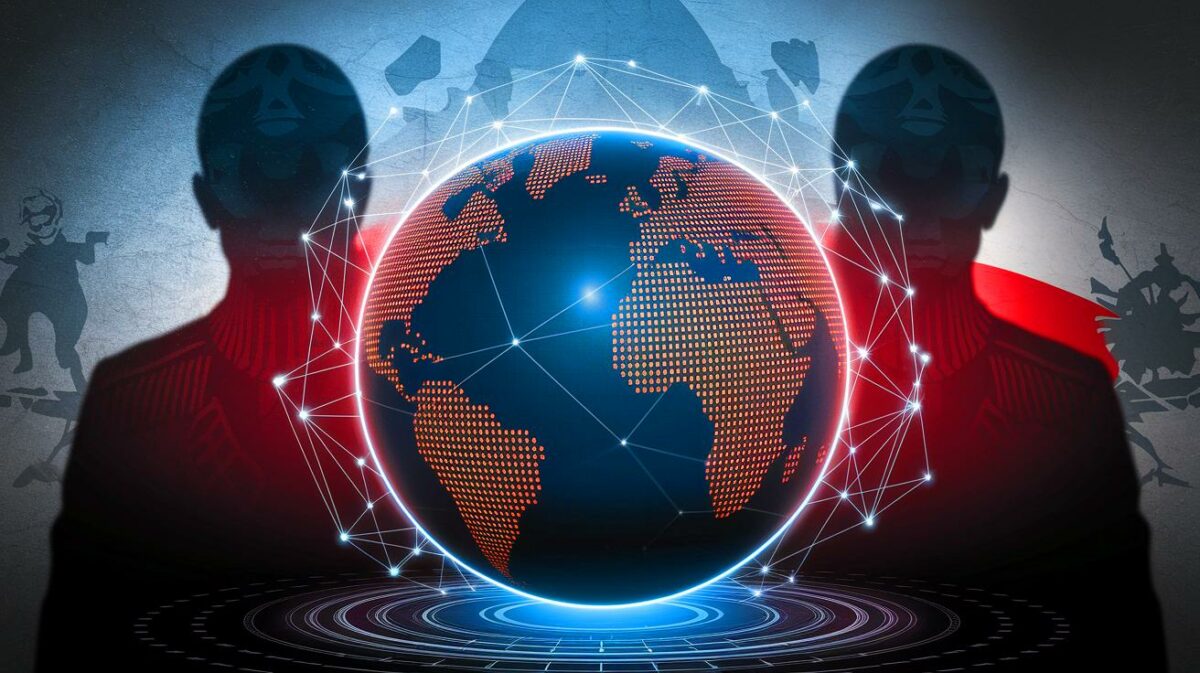| IN A NUTSHELL |
|
The recent alarm raised by major telecommunications companies has highlighted a critical issue that could impact the global infrastructure. Vodafone, Telefonica, and Orange have alerted the European Union, the United Kingdom, and NATO about the rising attacks on undersea cables. These cables are vital as they carry most of the world’s internet data. A rise in sabotage could potentially disrupt essential services worldwide, sparking fear and concern among international leaders and industries.
The Accusations Against Russia
In a bold statement, telecom companies have warned that the damage to undersea cables extends far beyond Europe. It poses a threat to global internet infrastructure, electric grids, international communications, financial transactions, and critical services worldwide. As these cables are responsible for transmitting approximately 95% of international data, their safety is paramount. The ongoing incidents have led to direct accusations against Russia, which vehemently denies any involvement. The British Defense Secretary has described these incidents as a sign of Russia’s growing aggression, emphasizing the need for vigilance and potential retaliatory measures.
In response to these accusations, Western powers are urged to enhance collaboration through intelligence sharing and joint surveillance initiatives. The goal is to devise harmonized approaches for the undersea cable ecosystem to align security objectives with operational feasibility and economic viability. This involves developing risk-based best practices in close cooperation with the industry. With 11 cables damaged since October 2023 in the Baltic Sea alone, and similar incidents reported in the North Sea, the situation is pressing and demands immediate action.
France’s Preparations for Potential Threats
France has proactively addressed the risks associated with undersea infrastructure following the Nord Stream pipeline sabotage in 2022. President Emmanuel Macron ordered a thorough inspection of French cables and enhanced their surveillance. In collaboration with the French Navy and private operators like Orange Marine, security measures have been implemented, including security sensors, underwater drones, and maritime surveillance systems.
Despite these actions, the possibility of a total sabotage remains low, as it would require the simultaneous cutting of multiple major cables to significantly disrupt the network. France’s data systems are equipped with redundancies to reroute data flows in the event of an incident. In cases of confirmed emergencies, a priority plan could prioritize essential data circulation for hospitals and banks while restricting bandwidth-heavy services such as Netflix. This strategic international issue underscores the importance of protecting critical infrastructure against potential threats.
“Unprecedented Military Upgrade”: Senators Reveal Massive Boost for Trump’s Iron Dome
The Global Impact of Undersea Cable Sabotage
The deliberate targeting of undersea cables has broad implications that resonate worldwide. With over 500 cables transporting the bulk of international data, any damage to these lifelines can have cascading effects on global connectivity and security. The strategic importance of these cables cannot be overstated, as they are crucial for maintaining the flow of information across continents.
Underlining the seriousness of the threat, experts emphasize that any hostile act against these infrastructures could be viewed as a casus belli, or act of war. The international community recognizes the necessity of protecting these cables through a combination of satellite monitoring and intelligence sharing to safeguard sensitive areas. The rising tensions highlight the need for robust international cooperation to preempt potential threats and preserve global communications stability.
Looking to the Future: Ensuring Security and Stability
As the world becomes increasingly interconnected, the security of undersea cables remains a top priority for nations and industries alike. Efforts to protect these infrastructures must be ongoing and adaptive to the evolving threat landscape. The stakes are high, as the consequences of a large-scale disruption could be devastating for economies and societies globally.
Moving forward, it is essential for countries to continue investing in the resilience and security of their critical infrastructures. This includes fostering international partnerships, advancing technological solutions, and implementing robust defense mechanisms. As we ponder the future of our interconnected world, the question remains: How will nations collaborate to secure their vital communication networks against emerging threats in this digital age?
Did you like it? 4.6/5 (27)









Is it true that Russia has the capability to cause a total internet blackout? 🤔
Thank you for highlighting this critical issue. It’s concerning to see how vulnerable our global infrastructure is.
I’m skeptical. Could this be just another case of media sensationalism?
Why isn’t there more international cooperation to protect undersea cables?
Great article! But I’m curious, what are the potential retaliatory measures mentioned?
Wow, this sounds like a plot from a spy movie! 🎬
France seems to be on top of things. What about other countries?
Thanks for the info! I didn’t realize how crucial undersea cables were.
How can regular people like us help in preventing these attacks?
I’m worried about a global internet blackout. What redundancy measures are in place?
What role do tech companies play in safeguarding these critical infrastructures?
Do you think the accusations against Russia are justified?
Why is this issue not getting more attention in the media? 🤷♂️
Can someone explain why undersea cables are so vulnerable?
France’s proactive measures are impressive. How effective are they, though?
Yikes! It feels like we’re living in a cyber-thriller novel. 📚
How do these incidents affect everyday internet users?
Could other countries be involved besides Russia?
Is the US really treating this threat with maximum urgency? I haven’t heard much in the news.
Thank you for covering this topic. It’s eye-opening! 👀